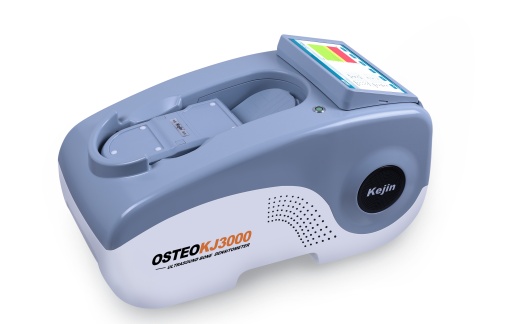News
Phone:+86 15251899190
Ultrasound Bone Densitometer: Safeguarding the Bone Health of the Elderly
Author: Read Count:36 Time:2024/1/30 15:39:02With the intensification of population aging, the health issues of the elderly are increasingly receiving social attention. Among them, bone health issues are a common health risk among the elderly, which can have a significant impact on their quality of life. Scientific management and monitoring of bone mass in the elderly is therefore particularly important. Ultrasound bone density analyzer, as a non-invasive bone screening instrument, is gradually becoming one of the important means of bone management for the elderly.

Ultrasound bone density meter uses the propagation speed of ultrasound in bones to measure bone density and evaluate the health status of bones. The use of ultrasound probes for measurement outside the body is non-invasive and suitable for bone health screening in the elderly.
Early screening of bone risk
Ultrasound bone densitometer can detect bone problems early and remind elderly people to take timely measures for adjustment. By regularly monitoring bone density, doctors can promptly identify bone health risks and use the detection data of bone density meters as a reference to provide personalized improvement plans for the elderly.
Scientific management of bone mass in the elderly
Reasonable diet
Elderly people should maintain a balanced diet and eat more foods rich in calcium, protein, and vitamins, such as milk, soy products, fish, green leafy vegetables, etc. At the same time, avoid excessive drinking and smoking, as these bad habits can have a negative impact on bone health.
Moderate exercise
Moderate exercise can help increase bone density and reduce bone health risks. Elderly people can choose low-intensity exercise methods such as walking, Tai Chi, and yoga to avoid the harm caused by intense exercise.
Regular inspections
Elderly people should undergo regular bone density checks, which can effectively reduce bone health risks through scientific monitoring and management.
Actively adjusting
Once bone health risks are identified, elderly people should actively cooperate with doctors to make adjustments. During the adjustment process, one should maintain an optimistic attitude and undergo regular check ups to improve their bone condition as soon as possible.
Let's jointly focus on the skeletal health of the elderly and create a better life for them in their later years.





